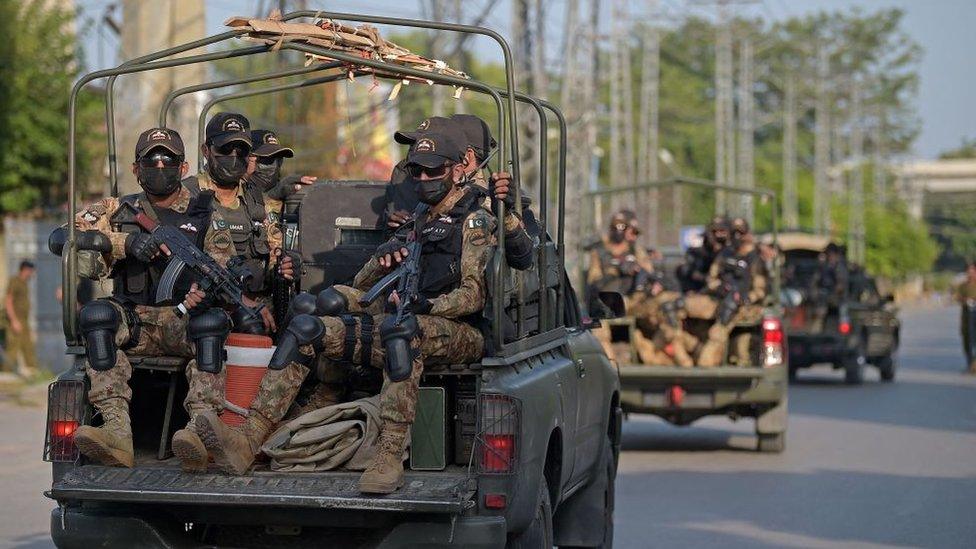Imran Khan: Pakistan army sacks three officers over May protests
- Published
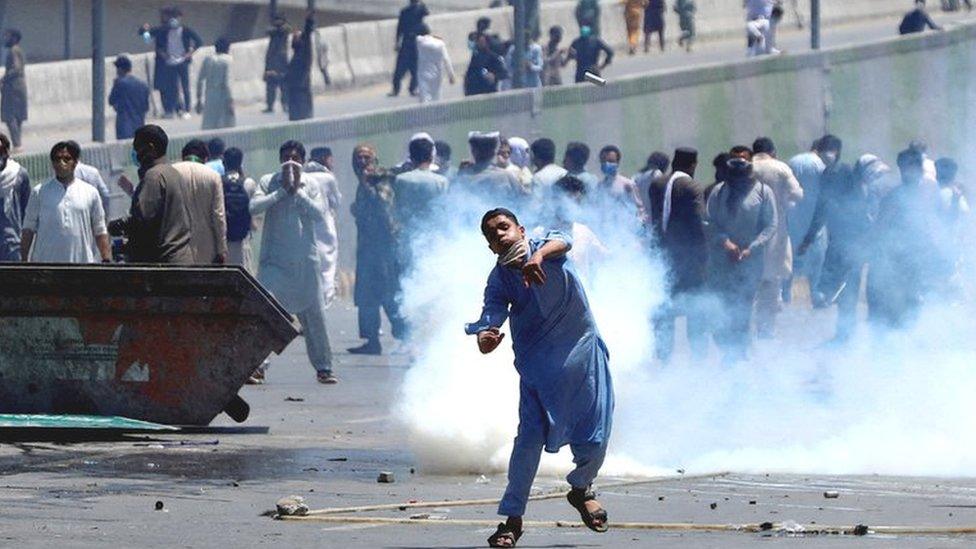
Thousands of Imran Khan supporters took to the streets following the brief arrest of the former Pakistani prime minister on 9 May
Pakistan's army has fired three senior officers for their conduct during protests following the May arrest of former prime minister Imran Khan.
The rare public announcement did not name the officers, only saying that they failed to protect army properties.
Pakistan's powerful military wields massive political influence and Mr Khan's supporters blame it for his removal as prime minister.
Mr Khan was arrested on corruption charges, sparking nationwide unrest.
Thousands of Mr Khan's supporters tore through military buildings across the country, setting them on fire, including the house of an army general. At least eight people died in the protests.
More than 5,000 people were arrested afterwards, although most were later released.
But more than 100 people - including civilians - are still on trial in military courts following two inquiries led by generals.
"We had to find out what had gone wrong," said army spokesman Major General Ahmad Sharif Chaudry at a press conference on Monday where the sackings were announced.
Fifteen other officials had been punished, he added.
He said that several relatives - including wives - of army officers were among those facing trials for allegedly aiding and abetting the violence.
He did not say how many of those on trial were civilian or military officials, only that they "have the right of access to civil lawyers" as well as the right of appeal.
Human rights groups have voiced concerns over the unfairness of trying civilians in military courts.
Amnesty International said that civilians who are tried in military courts in Pakistan experience a lack of due process, transparency, and are subject to coerced confessions in "grossly unfair trials, external".
Three petitions against the trial have been filed in Pakistan's Supreme Court, including by Mr Khan's PTI party.
The army has accused PTI leaders of premeditated arson, naming the 70-year-old former prime minister in at least two criminal cases over the protests.
Mr Khan, who much of the public views as a political outsider untouched by corruption, was ousted from power last year in a parliamentary vote of no confidence.
Since then, he has repeatedly locked horns with the military, accusing them of engineering his removal from office - accusations the army denies.
For decades, the military - either directly or through civilian governments - has held a firm grip over how the country is run.
How much influence does the Pakistani army have in politics? (published in 2018)
Retired general Talat Masood, who now works as an analyst, said he thought the military had no option but to announce it was taking action against officers.
"They undertook such a major operation and retired such a large number of senior officers as well as from middle ranks that they couldn't have hidden it. I think they made a wise decision to come out and say openly we have a very serious problem."There are no precedents for 9 May. You could relate them in a very small way with the past, but for such a large number of officers of senior and junior ranks to have been involved shows that we need to really reassess the role of politics in Pakistan. "The message [from the army] is that it is not for everyone to get involved [in politics] especially at the core commander level. If at all, it has to be the chief or the chairman of the joint staff who may have to give advice to the government."
Additional reporting by Caroline Davies
Related topics
- Published11 May 2023
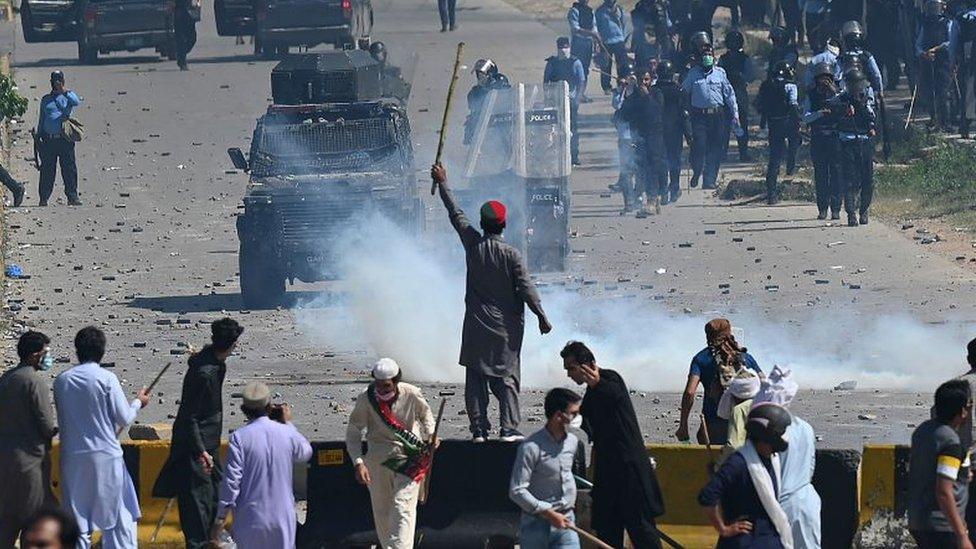
- Published12 May 2023
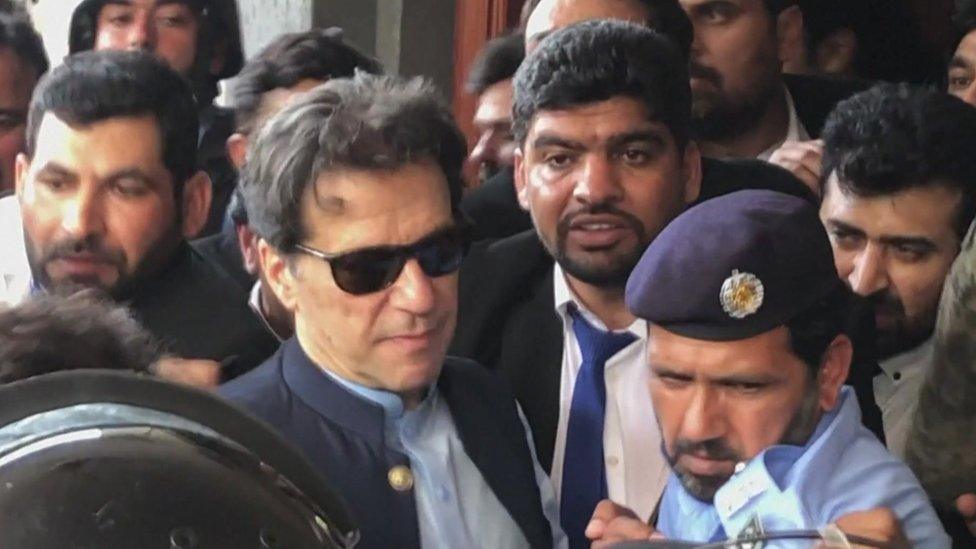
- Published29 May 2023
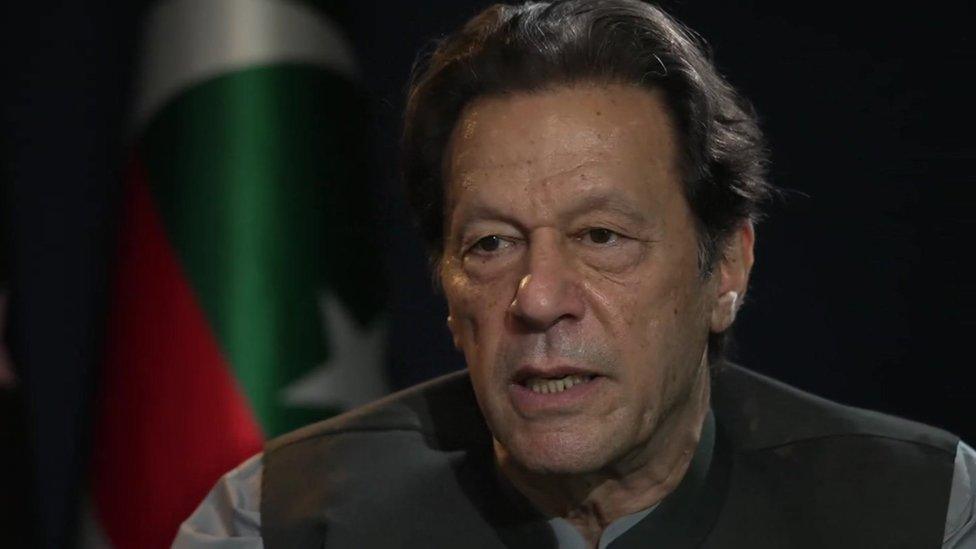
- Published4 June 2023
